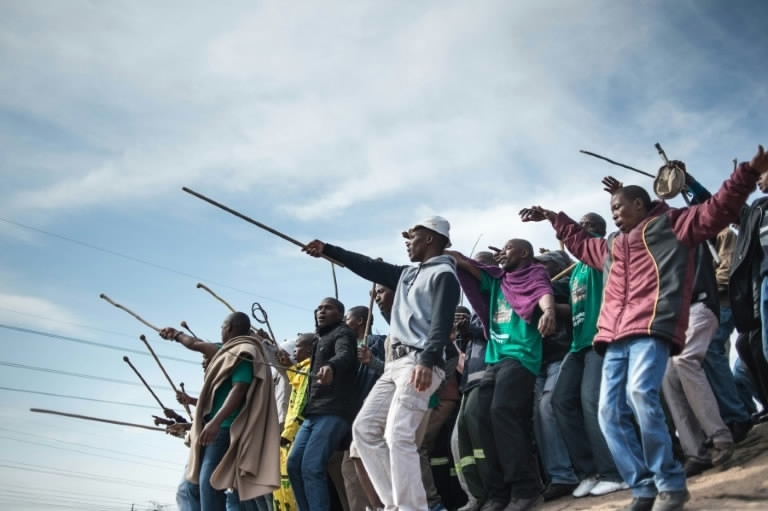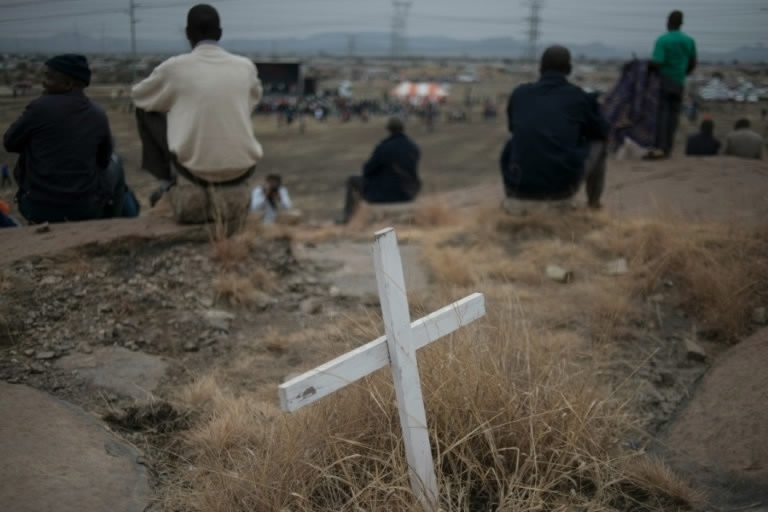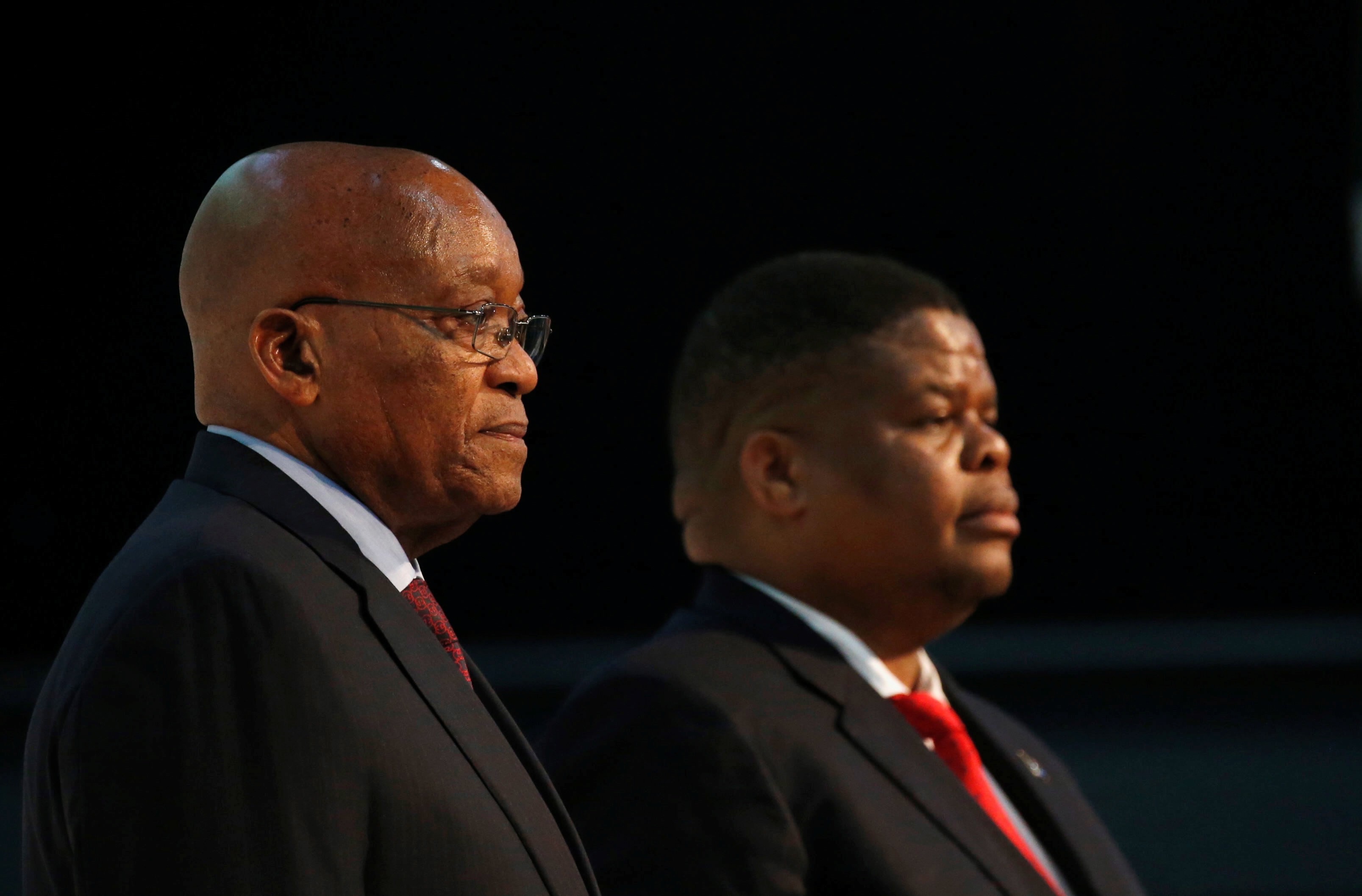
Opinions
15:17, 12-Dec-2017
Opinion: I boycotted Apartheid, should I boycott South African mines?
Guest commentary by Arison Tamfu

The Apartheid Museum in South Africa is a veritable window on how Apartheid was born. Here, there is a striking relationship between South Africa’s mining industry and the foundations of Apartheid and racial segregation.
In 1886, gold was found in Johannesburg. The discovery significantly revamped the economy for this region and soon Johannesburg became the most cosmopolitan city in Africa. As a result, South Africa was the focus of economic exploration by European settlers for potential mining opportunities.
However, the discovery came at a price, and the price was paid by black African laborers. The English employed cheap black labor to mine for the gold. The work was ruthless and exhausting, and required a lot more workers than the English had anticipated.
They realized that they could employ more blacks for much cheaper costs, and therefore were replacing the white Afrikaners with cheap black labor.

Miners dance during commemorations to mark the fourth anniversary of the Marikana Massacre in Rustenburg, Aug. 16, 2016. /AFP Photo
Miners dance during commemorations to mark the fourth anniversary of the Marikana Massacre in Rustenburg, Aug. 16, 2016. /AFP Photo
“With a negative reaction from the white Afrikaners as they believed they were losing their jobs to less qualified workers, white supremacist groups began to form to fight for their superiority over blacks. With a new government put into place as well, there were segregation laws put into place to put whites above blacks. As such, segregation was built on the usage of migrant labor, and Apartheid was born,” said Linley Benson of Elon University.
The environment that was born and fed throughout the segregation of black laborers and the whites grew into a perfect breeding ground for Apartheid. Segregation and Apartheid evolved as a consequence of the growing economy and mining industries that built South Africa.
But soon, Apartheid was boycotted, fought and defeated. But mining is still going on and nothing much has changed: strict rules for black workers still exist, working conditions still deplorable for the miners and the whites are still supreme.

The Marikana mine workers were gunned down on Aug.16, 2012, after police were deployed to break up a wildcat strike that had turned violent at the Lonmin-owned platinum mine northwest of Johannesburg. /AFP Photo
The Marikana mine workers were gunned down on Aug.16, 2012, after police were deployed to break up a wildcat strike that had turned violent at the Lonmin-owned platinum mine northwest of Johannesburg. /AFP Photo
Now, a charter for the South African mining sector seeks to rectify this injustice but it is fighting for justice with injustice. In essence, the charter simply helps one set of elites seeking to replace another.
Little doubt, the harter has aroused controversy and deepened division. The mining industry, represented by the Chamber of Mines, and the Department of Mineral Resources are in a standoff over the Mining Charter, which puts extra levies on companies and increases black-empowerment requirements that may dilute shareholders.
African National Congress Treasurer-General Zweli Mkhize thinks that South Africa should reopen negotiations with the mining industry on the much-criticized new rules rather than rely on the courts to resolve disputes.
“The whole negotiation has to be reopened. Working together is better to get a formula for decisions we can live with together, rather than subjecting everything to the courts,” Mkhizewho, who is seen as a potential choice to succeed President Jacob Zuma as leader of South Africa’s ruling party ANC, said in a meeting.
The Chamber disagrees and has been boycotting events (and rightly so) to reach a compromise. It depends entirely on courts' judgment.

President of South Africa, Jacob Zuma (L) stands next to David Mahlobo, Minister of Energy, ahead of the Energy Indaba conference in Midrand, South Africa, December 7, 2017. / Reuters Photo
President of South Africa, Jacob Zuma (L) stands next to David Mahlobo, Minister of Energy, ahead of the Energy Indaba conference in Midrand, South Africa, December 7, 2017. / Reuters Photo
Chief among the Chamber’s concerns is a rule requiring mines to be 30 percent black-owned in perpetuity. That would lead to shareholder dilution because many companies already sold 26 percent stakes to black investors at preferential rates in the 2000s to comply with previous rules, believing it was a one-time deal.
If South Africa’s mining sector must discourage Apartheid and racism, then it needs to annul the Charter and create a low-tax regime that encourages new entrants. While the ANC wants to create an environment conducive to growth, the mining industry must do more to transform an economy that’s too narrow, too concentrated.
(The author is a multi-award winning journalist and West African editor of the Daily Reporter. He is also a freelance with major regional and international news media. The author’s opinions are his own and do not necessarily reflect those of CGTN)

SITEMAP
Copyright © 2018 CGTN. Beijing ICP prepared NO.16065310-3
Copyright © 2018 CGTN. Beijing ICP prepared NO.16065310-3